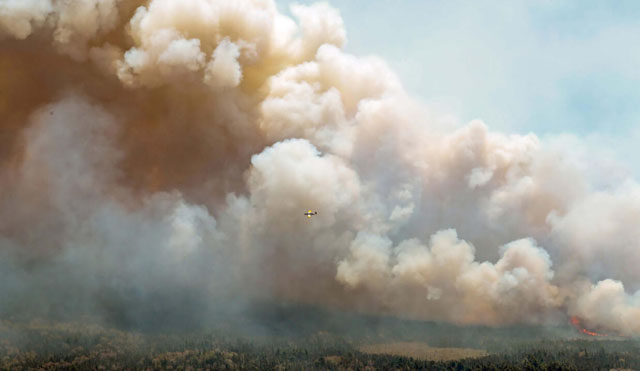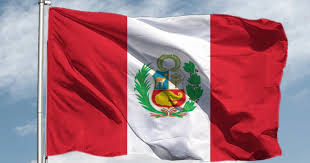
OTTAWA, June 3 (NNN-AGENCIES) — Some 10,000 people were ordered to evacuate from a city in the Canadian province of Quebec in the face of advancing wildfires, officials said.
Steeve Beaupre, mayor of Sept Iles on St. Lawrence River declared a local state of emergency and announced a mandatory evacuation after nearby wildfires “advanced very quickly” overnight.
Residents were told in the morning to vacate their homes by 4 pm local time.
Stephane Lauzon, a member of Parliament from Quebec, told a news conference in Ottawa that as many as 10,000 residents or one-third of the population of Sept Iles would be displaced.
This followed the evacuation on Thursday of 500 residents of Chapais in the north of the province.
“The situation is quickly changing in Quebec,” Lauzon said, adding that about 100 fires, “many more than yesterday,” were burning in the province, including about 20 out of control.
Across Canada more than 210 fires were still burning after scorching more than 2.7 hectares. A total of 29,000 people had been evacuated before Friday’s order.
After major flareups in the west of the country in May, notably in the Prairies provinces of Alberta and Saskatchewan, firefighting shifted in the past week to Nova Scotia on the Atlantic coast, following hot, dry weather.
Officials hoped rain and cooler weather forecast for the weekend following a record-breaking heat wave will bring relief.
Almost 1,000 firefighters from Australia, New Zealand, South Africa and the United States also arrived or were en route to bolster firefighting efforts, and Ottawa has started to deploy the military in Nova Scotia to help out, according to Emergency Preparedness Minister Bill Blair.
“This is a scary time for a lot of people from coast to coast to coast,” Prime Minister Justin Trudeau told reporters.
In Halifax, the largest city in Nova Scotia, busloads of suburban residents were taken on tours for a first glimpse of devastated neighborhoods.
About 200 homes have been destroyed and nearly 20,000 residents have been displaced by wildfires in Nova Scotia.
Canada has been hit repeatedly by extreme weather in recent years, the intensity and frequency of which have increased due to global warming. — NNN-AGENCIES





